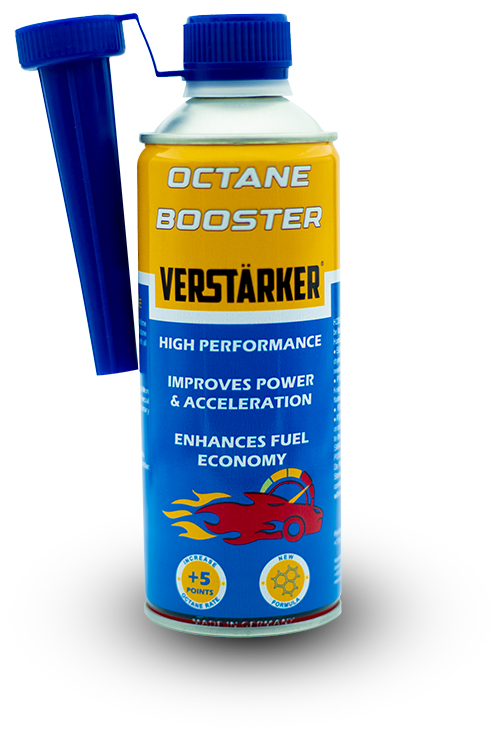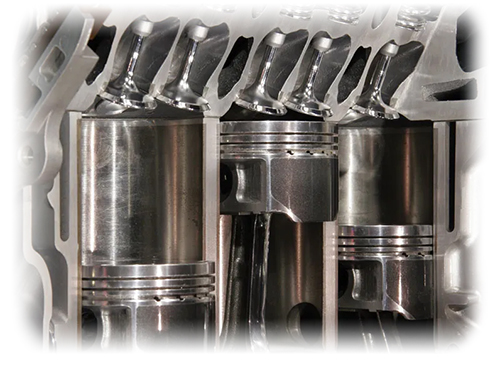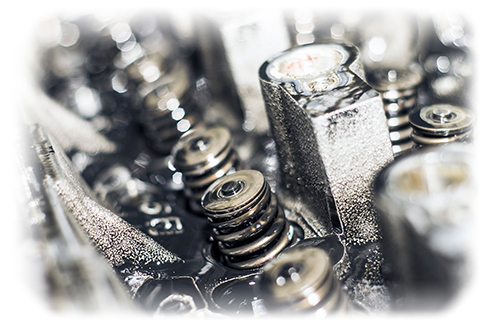
Octane booster is a fuel additive used to increase the octane rating of gasoline. The octane rating is a measure of a fuel’s ability to resist knocking or detonation, which is the uncontrolled combustion of the fuel-air mixture in the engine. High-performance engines require higher octane ratings to prevent knocking and improve performance.
Octane boosters typically contain chemicals such as MMT (methylcyclopentadienyl manganese tricarbonyl), TEL (tetraethyl lead), and MTBE (methyl tertiary-butyl ether). These compounds increase the octane rating of gasoline by increasing the fuel’s resistance to knocking.
ECO-FRIENDLY
The use of MMT has been controversial due to its potential environmental and health effects. Overall, the use of MMT as an octane booster has decreased in recent years due to increasing concerns about its environmental and health effects, and the availability of alternative fuel additives.
Tetraethyl lead (TEL) is a highly toxic substance that was used as an octane booster in gasoline for many years. However, due to its harmful effects on human health and the environment, TEL has been banned in most countries worldwide.
Also, one of the main environmental concerns with MTBE is its potential to contaminate groundwater and surface water sources. MTBE is highly soluble in water, and can easily leach into the ground and mix with drinking water supplies. This has led to the closure of many drinking water wells and water treatment plants in areas where MTBE has been detected in groundwater.
Octane boosters are commonly used in racing and high-performance vehicles to improve power and fuel efficiency. However, the use of some octane booster chemicals, such as lead, is restricted or banned in some countries due to their harmful effects on the environment and human health.
Verstärker uses sustainable and eco-friendly ingredients, made of non-toxic, renewable, and biodegradable substances. Avoid using heavy metals, lead, or other harmful chemicals.
Verstärker considers using renewable sources such as biofuels, biomass, or plant-based materials that can be grown sustainably and do not contribute to deforestation.
The manufacturing process is optimized to minimize greenhouse gas emissions, air pollutants, and waste generation.
PERFORMANCE
Using an octane booster can potentially improve the performance of a vehicle in terms of horsepower and acceleration. This is because higher octane fuel can resist detonation better and burn more efficiently, resulting in a more powerful explosion in the engine.
Verstärker octane booster tested in motorsports boosts the octane number of the gasoline and ensures that the engine can reach its full performance. It optimizes combustion after addition and increases fuel efficiency. Significantly improves torque and acceleration. Specially developed for racing use and is also recommended for public road traffic.

Verstärker octane booster is made by incorporating corrosion inhibitors into the additive formula. Corrosion occurs in fuel systems when metal components are exposed to fuel, water, and oxygen, which can cause rust and scale buildup. These contaminants can cause damage to fuel injectors, fuel pumps, and other engine components, leading to reduced performance and costly repairs.
Verstärker anti-corrosive octane booster is a suitable corrosion inhibitor selected based on the type of metals used in the fuel system. Typically, inhibitors such as amines, alcohols, and organic acid compounds are used to protect metal surfaces from corrosion.

Cleaning agents can be added to octane boosters to help keep fuel systems and engine components free from deposits, carbon buildup, and other contaminants that can negatively impact performance. Common cleaning agents found in octane boosters include detergents, solvents, and dispersants.
Detergents are surfactants that can help to remove and prevent the buildup of carbon deposits and other debris in the engine. Solvents are used to dissolve buildup in the fuel system and engine components, breaking it down into smaller particles that can be burned off during normal operation. Dispersants help to prevent the buildup of deposits by dispersing contaminants, such as small carbon particles so that they do not settle and form larger deposits in the fuel system.
Verstärker cleaning agent is compatible with the fuel and engine materials to avoid damaging the fuel system and engine components, effective in removing and preventing the buildup of deposits and contaminants.